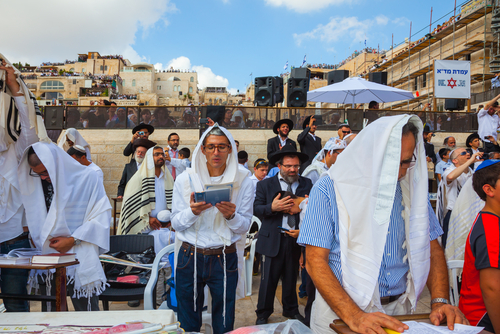
One should wear festive clothes on chol hamoed.
One should buy his wife and children presents for the holiday.
One doesn’t put on tefillin the entire chol hamoed.
There is a commandment to go visit Jerusalem, and see its yeshivas and the Western Wall, even in our times.
Doing work on chol hamoed which is not needed for the day itself is forbidden by rabbinical decree and some say it is forbidden even by Torah decree. If it is needed for the day itself, it is permitted.
One may do any work if it would otherwise entail a loss, even if it is not needed for chol hamoed. This is why postal services, banks, and grocery stores may remain open. If a person will be fired from his job if he doesn’t work during chol hamoed, he may go to work.
The general rule is that if not doing work will entail a loss, whether irreparable or not, one may do it.
All business dealings not required for the holiday are forbidden, whether selling or buying. Only if it will entail a loss is it permitted, such as if the price will go up or he will no longer be able to find this item in the market.
One may not print books on chol hamoed.
One may not take a haircut or shave on chol hamoed.
One may wash the floor.
One may polish shoes.
One may iron.
It is prohibited to launder on chol hamoed even if one needs the item that day, unless one has no other clothes and he needs these clothes on chol hamoed.
One may record on a tape or video. One may take pictures.
One may play music.
Marriages are not conducted on chol hamoed.
One may not write Torah scroll script on chol hamoed, only the common Hebrew script that we usually write in.
